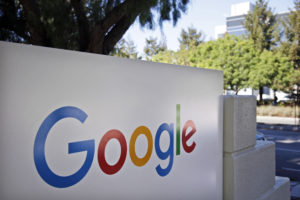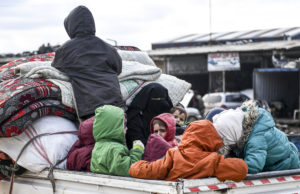Kids Are Fat People Too
One pill makes you larger and one pill makes you small. And the ones that mother gives you soon will control your cholesterol.One pill makes you larger and one pill makes you small. And the ones that mother gives you soon will control your cholesterol.
Childhood long ago ceased to involve idyllic hours chasing small animals through the field or even careening around the neighborhood on a bicycle. But do we really need to liven it up with Lipitor?
To the cocktail of drugs young children already are taking, the American Academy of Pediatrics is now saying that some kids as young as 8 might benefit from cholesterol-reducing medication. The reasons are too familiar: Our kids are growing too fat (just like their parents), eating lots of the wrong foods (just like their parents), getting insufficient exercise (just like their parents) and showing the warning signs of serious future health problems — high cholesterol levels — that are precursors to heart attacks (just as they are for their parents).
So, after detecting an unnerving jump in cholesterol levels among the young, the pediatrics profession is suggesting that some kids with high cholesterol and a family history of early heart disease “be considered” candidates to take the drugs now prescribed mostly to those who are in middle age or older. Screening for cholesterol levels, according to recommendations listed in the journal Pediatrics, should begin for some children when they are as young as 2. Can cholesterol drug commercials on the Disney Channel be far behind?
There’s no wonder the medical profession is concerned about overweight kids who are developing life-threatening health conditions. The pediatric profession long ago recommended that children 2 and older eat less sugary food, consume whole-grain breads instead of processed, white baked goods and drink skim or low-fat milk. The children’s doctors say kids should get “60 minutes of moderate to vigorous play or physical activity daily.” And by vigorous, they don’t mean thumbing to victory in a video game or racing to get a snack during a television commercial.
“It’s appalling what we’ve let happen to our children,” says Kelly Brownell, director of the Rudd Center for Food Policy and Obesity at Yale University. “And the fact that the children have such high cholesterol levels is a sign of the environment we have created for them.”
Another part of what Brownell calls our “environment” is the reliance on medication as the answer to the poor conditions we’ve created for ourselves. “As a culture, we’re very prone to creating unhealthy environments and then trying to use medicine to mop up the damage.”
The epidemic of obesity among children is real, and already it is leading to the onset of serious — and expensive-to-treat — diseases such as diabetes at ever-younger ages. But like another serious problem much in the news lately — sky-high energy prices — this is one that is largely of our own making.
We’ve allowed the food industry to market directly to kids, overwhelming them with a tsunami of sugary inducements in cereal ads alone. We’ve allowed vending machines full of junk food in the schools. We’ve somehow made the social activity of sitting around eating pizza while watching a sporting event as acceptable as playing the sport itself. As schools have come under increasing pressure to teach — and test — more, physical education programs and even recess for elementary school kids often have been cut.
Just as we have a decades-long history of all the wrong habits when it comes to energy consumption, we’ve got a decades-long history of saying we want to be fit, while conscientiously ignoring most of the good advice that’s been out there for years. “The fact that young kids may need statin drugs now is a sign of how bad we’ve made it,” Brownell says. “If anything, this study should have sounded the loudest possible alarm bell that something needs to be done to provide better conditions for our children.”
When the U.S. surgeon general first reported that smoking cigarettes was a killer habit — and hardly the glamorous lifestyle choice portrayed in television and the movies — people began to quit in droves. Eventually, tobacco use became a social taboo. Schools and parents go to great lengths now to keep kids from smoking. After all, there’s no prescription drug that can cure lung cancer.
How loudly does the siren about our children’s unhealthy eating habits have to sound before we get the message that the response has to come from us — and not the pharmaceutical industry?
Marie Cocco’s e-mail address is mariecocco(at)washpost.com.
© 2008, Washington Post Writers Group
Your support matters…Independent journalism is under threat and overshadowed by heavily funded mainstream media.
You can help level the playing field. Become a member.
Your tax-deductible contribution keeps us digging beneath the headlines to give you thought-provoking, investigative reporting and analysis that unearths what's really happening- without compromise.
Give today to support our courageous, independent journalists.






You need to be a supporter to comment.
There are currently no responses to this article.
Be the first to respond.